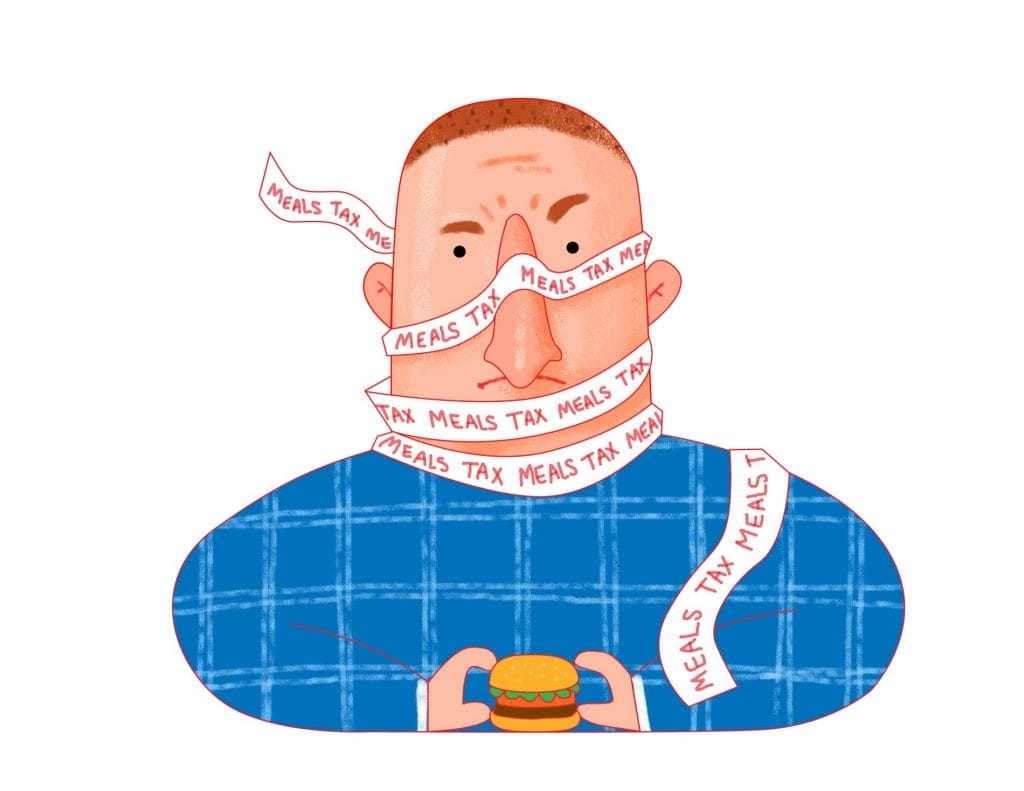Taxing meals and funding schools: Is there a better way?

Illustration by Ellie Kim

The Richmond city council voted to increase the meals tax from 6 to 7.5 percent Monday. The plan, proposed by Mayor Levar Stoney, aims to properly fund the Richmond school system and is set to be enacted July 1.
If you bought a meal today for $10, it would be $11.13 after tax, according to the Richmond Times-Dispatch. Once the meal tax is imposed, it will be $11.28. The plan is to raise just over $9 million annually to allow the city to borrow $150 million for school improvements over the next five years.
The lack of funding for Richmond schools is a problem. The students are cheated out of the same level of education other students from more well-funded schools receive. A well executed plan is needed to help make sure our city’s schools get the proper attention needed for improvement. But the meals tax isn’t the way to do it
Increasing the city meals tax is asking for the money to fund schools from a population that is already impoverished.
The poverty rate of students in Richmond Public Schools is 39 percent, double schools statewide, according to the Richmond Times-Dispatch. There is a correlation between the poverty rates of a school district and the funding that district gets from the state. Matthew Lynch, award winning author and education activist explained on his website, the Edvocate, how since 2010 Title I schools have decreased. Throughout the article he explained the troubles that affect both students and the city when schools aren’t properly taken care of.
However, Lynch did put some blame on the states for not being, “vigilant in raising revenue sources through taxes and fees.”
A similar meals tax increase was enacted more than 10 years ago to fund what is now the Dominion Performing Arts Studio. This was supposed to be temporary, but when it was about to sunset, the city council kept it in place. If the plan does work in reforming our schools, what will happen when the tax is no longer needed? Will it stay a burden on our citizens just as the first meals tax did?
The Richmond Times-Dispatch reported 1 in 3 restaurant customers come from outside a 50-mile radius of Richmond, so the whole weight of the tax won’t be on Richmond residents. Despite that, more than likely because of the rise in tax both college students and other Richmond residents will try to decrease their restaurant visits in order to save money.
Restaurant owner have voiced concern for the meals tax increase fearing the loss of business that could come as a result. Restaurant owners seem to be the main voice in the crowd against the tax, while many citizens and even school students agree with the tax increase.
Richmond public schools need more funding for the benefit of their students. This tax plan just doesn’t seem to be the starting point. Is there a better way though? Have we exhausted every other opportunity to improve our schools? The city needs to ask these questions before taxing away at their public.
Marlon McKay, Contributing Writer


